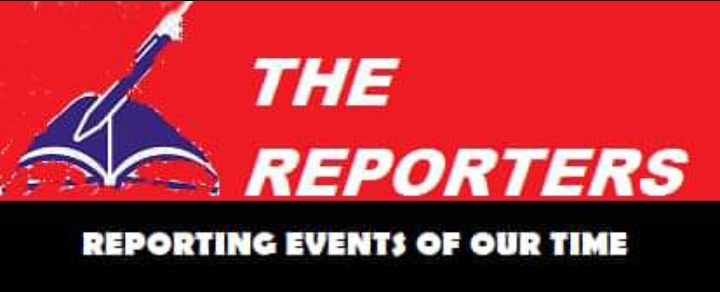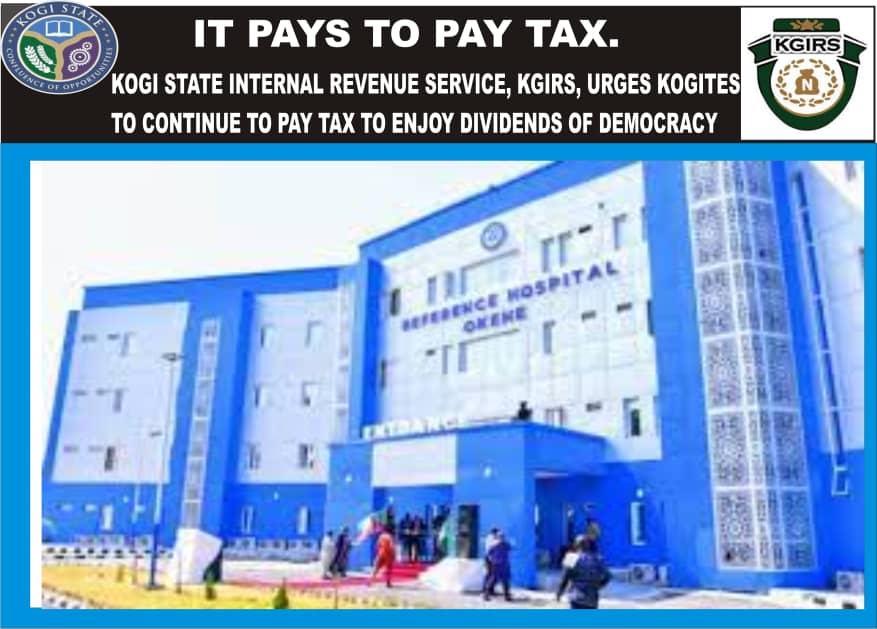 The Independent Media and Policy Initiative (IMPI) has described the rate with which the Naira is appreciating as a reflection of the bouquet of positive policies introduced by the Nigerian authorities and the Central Bank of Nigeria (CBN).
The Independent Media and Policy Initiative (IMPI) has described the rate with which the Naira is appreciating as a reflection of the bouquet of positive policies introduced by the Nigerian authorities and the Central Bank of Nigeria (CBN).
In a policy statement on Wednesday in Abuja by the Chairman of IMPI, Mr Niyi Akinsiju, the Think-tank argued that the government and the CBN deserved commendation for the policies that were addressing the supply and demand sides of the foreign exchange market.
IMPI acknowledged that the resurgence of Naira in the forex market was as a result of CBN’s directive to banks on Net Open Position (NOP) as well as the clearing of the more than $7 billion foreign exchange backlog due to foreign investors.
It also cited CBN’s new status as the official revenue collection entity of the Nigeria National Petroleum Corporation Limited (NNPCL) and concluded that the country’s monetary and fiscal policy authority have done a good job.
The Think-tank added that the sale of dollars to BDCs at the rate of N1,251/$ is a clear indication of the possibility of increased value of the naira over the next few months.
Full Statement
Policy Statement 011 issued by the Independent Media and Policy Initiative (IMPI)
Inside the CBN Manoeuvres That broke the Open Market Economic Chain and stabilised the Naira in record time
We feel enthused over the acknowledgement, across the country, of the reversal of the ill-fortunes of Nigeria’s national currency, the Naira, by the Central Bank of Nigeria (CBN). We have observed that the Naira is gradually stabilising against mainstream foreign currencies, especially the Dollar over the last three weeks, appreciating from a low of N1,900 to $ on Tuesday, 20 February, 2024 to a high of N1,345 on Tuesday 26 March 2024 at the Bureau de’ Change (BDC) arm of the foreign exchange market.
By our understanding of open market currency float regime, as adopted by the federal government and the Central Bank of Nigeria, accomplishing this rate reversal within a short span of time, is a feat that is truly worthy of celebration.
The standard economic features of a country transiting from a managed foreign exchanged float (a regime where the government determines and set the rate at which its currency is bought or sold against other currencies) is that the adjustment is never easy. There is clearly a period where things get worse. This is especially the case as soaring import costs spur inflation and make lives harder for citizens of the country and for these reasons, the policy is associated with inflicting economic pains on the poor of a country. This is why many central banks are reluctant to let the exchange rate fluctuate, a phenomenon known as “fear of floating.”
The experience of Egypt, an African country and the second largest economy in the Arab world after Saudi Arabia, exemplifies the hard time associated with unification of foreign exchange windows as done by Nigeria. Unlike Nigeria, Egypt recently adopted the free-float regime on the prompting of the International Monetary Fund (IMF) as part of measures to address economic dysfunctionalities in the country, especially as related to a foreign currency crisis that has more to do with liquidity than with pricing just as being experienced in Nigeria.
Again,unlike Nigeria, the Egypt secured a $35 billion investment from the United Arab Emirate and $8 billion loan from the IMF.
The Egyptian pound fell beyond 50 pounds against the dollar in the last week of February, after being officially held at about 31 to the dollar for almost a year while it reached more than twice that figure on the black market leading to inflation figures ratcheting up to 35 percent in February from 30 percent in January and compared to Nigeria where inflation rates moved from 29.9 percent in January to 31.7 percent in February.
In early March, Egypt’s Central Bank hiked policy rate by 600 basis points compared to the 400 basis points in Nigeria. The country also agreed to slow down infrastructure spending and allowed the Egyptian pound’s value to plummet, in exchange for a $5 billion expansion of its pre-existing loan package from the IMF to $8 billion. There was no such commitment by Nigeria because its situation is self-determined and organically oriented. The influx of cash, combined with the IMF’s loan into Egypt has reportedly rectified the government’s foreign currency shortage, at least for now. Comparatively, Nigeria’s government and the CBN do not have the benefits of the kind of huge fiscal intervention made by the UAE and the debt support from the IMF even though the two countries suffer the same economic fate.
Yet, while the situation report from Egypt signposts an economy at its tether ends, the Nigerian economy, evaluated by its foreign exchange outlooks currently, may have turned the corner with an attribution of certainty, a major consideration for foreign investors inflow into the country.
Remarkably, by our evaluation, this certainty and reversal of fortunes of the local currency was realized by a combination of professional discipline, conceptualization and deployment of appropriate policies and capacity to enforce its rules. In short, the fiscal policy and monetary authorities in Nigeria have found a way of pulling out the chestnuts from the fire by collaborative action and the will to provide a homemade solution. Firstly, by adapting central banking orthodoxy to stabilize the national economy, and secondly by fiscal authority committing to plugging resources leakages like the removal of fuel subsidy and revenue loss associated with wholesale thievery, like the savage crude oil stealing in the Niger Delta.
To properly put this in perspective, we need to, as a matter of fact, from the outset, commend the dexterity of the Governor of the CBN, Mr Olayemi Cardoso in conceiving policies and deploying them to time and target as he virtually willed into existence a new monetary policy and exchange rate echo system by using policy actions to address both the supply and demand sides of the domestic foreign exchange market.
One of the profound policies introduced to the market on 31st January, in the graduated steps to take charge of the market, was the administrative admonition to Nigeria’s Deposit Money Banks (DMB) to bring their Net Open Position (NOP) to prudential limit by 1st January, 2024. That was just a less than 24 hours’ notice to the banks.
CBN’s NOP mandate to the banks implies that no bank holds 20 percent long position the is, hold more foreign currency assets than liabilities by more than 20 percent long position that is not holding more foreign currency assets than the bank’s shareholder funds unimpaired by losses.
The strategic objective of this mandate was to get the banks to start offloading into the open market, about $7 billion they kept in long currency positions. That was a manoeuvre to address forex supply side concerns.
On the same day, 31st January, when the CBN relayed the important NOP to banks, the apex financial sector regulatory body also issued the new International Money Transfer Organisations’ (IMTO) rules for remittances in Nigeria – the rules, which are actually a bouquet of auxiliary policies, are generally understood to mean occasions of recurring person-to-person (P2P) payments of relatively low value from persons living abroad to persons in their home country which now account for a sizeable portion of Nigeria’s foreign exchange in-flow. In fact, between 2019 and 2022, Nigerians in the diaspora were reported to have remitted $60.22billion with a total of $168.33 billion in the past eight years (which is estimated to be over ten times higher than the amount of Foreign Direct investment (FDI) attracted to Nigeria for the same period).
This data is indicative of how remittances could spur economic growth and affect (whether positively or negatively) Nigeria’s volatile currency exchange regime. As a result, the Central Bank of Nigeria (CBN) pays very close attention to these transactions, particularly now that they have become an anchor segment of the Financial Technology Companies (fintech) ecosystem, being conducted almost exclusively via digital channels. The most significant change under the new guidelines is the prohibition on banks and FinTechs from obtaining IMTO licenses. That streamlines operators in the international money transfer aspect of the forex market.
The rules also removed all forms of constrictions on foreign currency transfers starting with the scope of users by expanding users to include transactions on a person-2-person (P2P), business-2-person (B2P) and business-2-business (B2B) basis which until the new guidelines was only permissible with specific approval from the CBN.
A more impactful feature of the new rule rationalized payment options available for diaspora remittance from bank accounts, mobile money wallets and cash to only cash and bank accounts. This enabled monitoring and oversight to ensure transparency in forex movement in the country.
Meanwhile, departing from the old guidelines which insisted foreign transfers were paid, strictly, in dollar, and further encourages dollar transaction by paying recipients additional five Naira for every dollar received, the new guideline asserts that payout is now restricted to Naira. In addition, transfers exceeding the naira equivalent of $200 must be credited to the recipient’s bank account. Naira cash payment equivalent for amounts below $200 will require an acceptable means of identification.
These perhaps, have turned the most significant of the bouquet of auxiliary policies. They, in many ways, discourage the dollarization of the economy, another phrase for currency substitution. Ordinarily, citizens of a country should not see the dollar or any foreign currency for that matter except when travelling out of their country. However, before the coming of the Cardoso-led CBN, most times, the banks are the ones who connect a recipient of international money transfer with the person who will change the dollar. Our evaluation of the market indicates that the dollar payment was one of the reasons there was a huge disparity between the official and black market. If there is no supply to the black market, there will just be a single rate for the dollar.
In formulating the policy on 5th March 2021, the CBN at that time, claimed that money transfer operators were not channelling transfers to Nigeria through official banking mechanisms. Instead, they were trading the flows in ways that enabled them to exploit differences between the prices of foreign currencies and the Naira. As a result, the Bank argued that the Nigerian economy was not benefiting as much from remittances as it should. The policy turned a failure in the same sense. It imposed new constraints on receivers. For cash payments, they must physically go into a bank and produce ID cards, afterwards, people will need to exchange the dollars into Naira because dollars are not legal tender in the country.
It was, indeed, counterproductive as it led to an increase in the use of informal intermediaries, with diaspora Nigerians sending cash to family members through friends who were travelling to Nigeria, and using unregistered money transfer operators. People desiring to send money home were drawn to informal settlement arrangements between senders and receivers or their agents, peer-to-peer transactions, and FinTechs which circumvented the government’s strict requirements for remittance transactions.
When final data were aggregated at the end of 2023, it was realized that out of an estimated $20 billion that the World Bank projected will find its way into the Nigerian economy from Nigerians in diaspora, only $2 billion, about 10 percent of the total remittance was formally receipted in the country. Mr Taiwo Oyedele, Chairman of the Presidential Committee on Fiscal Policy and Tax Reforms gives reasons for this abysmal collection.
The World Bank said for 2023, our diaspora remittance was about $20 billion. We estimate that more than 90 percent of that did not get to Nigeria, they are being externalized. We have spoken to loads of Nigerians almost everywhere, in the US, UK, etc. They told us how they send remittance. They use Apps, and we have tried some of those Apps, they use parallel market rates. So, you take $1,000 in New York, and tap on your phone that you are sending $1,000 to someone, a Fintech, they pay the Naira equivalent in Nigeria without bringing the dollars.
The Naira remittance payout policy, was tantamount to a magic wand; with the collections of policies deployed in January and early February, the CBN declared a humongous jump in overseas remittances to $1.3 billion compared to the $300 million remitted in January. In addition, the sum of $1 billion was generated from assets purchases by foreign investors. Put together, these sum up to $2.3 billion inflow into the economy in the 29 days in February, 2024. This is just $1.6 billion short of the total $3.9 billion inflow recorded in the whole of 2023.
The CBN was yet to be done. To further enhance the supply side of the market equation, it perhaps, for the first time in the history of the country, got approval to become the official revenue collection entity of the Nigeria National Petroleum Corporation (NNPCL) following a meeting between CBN and NNPC chiefs in Abuja on Thursday, 8th February 2024. We cannot but applaud this monetary policy and fiscal authority embrace for accountability and transparency in revenue collection.
Yet, the most impactful of the slew of policies by the CBN did not come until 27th February, the final day of its last Monetary Policy Committee (MPC) meeting when it announced a jump of its Monetary Policy Rate (MPR), that is, the regulatory benchmark interest rate, by 400 basis point, that is four percent to 22.75 percent. The bank had sustained the monetary policy rate at 18.75 percent for over six months. This was considered a disincentive to foreign investors who are the major purveyor of forex inflow into the country. From innuendos associated with this sentiment, it is believed that most foreign investors consider this rate as constituting a negative real return on their investment relative to inflation rate which in February, was 29.9 percent and had made foreign investors to literally ran away from the country’s capital market. The 27th February interest rate hike to 22.75 percent was a redemption, temporary, we have observed foreign investors rushing back to the capital market and snatching up federal government bond and treasury bills and the CBN Open Market Operation bills and other class of fixed income instruments.
Contrary to expectation of a possible abandonment of the stock market part of the Nigeria capital market as a result of the rush to the now attractive fixed income instruments market, foreign and local investors have continued to heavily patronize stocks listed on the Nigerian Stock Exchange (NSE). In the first place, the market had made a 33.71 percent return in two months to 29th February, and had emerged Africa’s best-performing stock market. As expected immediately after the hike in MPR, the NGX All-Share Index declined by 1.38% to close at 100,582.89 basis points on 28th February but had since appreciated to 104,647.37 basis points, an indication of increased price movement since the last MPR announcement. We, however, note the increase in headline inflation rate to 31.70 percent for February, 2024 which may impact foreign investors’ Nigeria security assets purchase outlook.
Perhaps, more instrumental to the resurgence of the Naira in the forex market is the clearing of the more than $7 billion forex backlogs in form of outstanding CBN commitment on swap deals and due returns to foreign investors who needed to recover forex they imported into the country or those desiring to convert monies earned in local currency in the course of their businesses to forex. The inability of the CBN to fund the forex needs of these different economic agents constituted an albatross of sorts on the national economy and was one of the major reasons foreign investors stayed away from the country. With the clearing of the forex backlog, we can submit that the national economy is on the threshold of capacity optimization. The latest in this regard is the sale of dollar to Bureau de Change at the rate of N1,251/$, an indication of the effective rate in the forex market, and for us, it signposts the possibility of increased value of the Naira over the next few months.
As the CBN adeptly leads the country through the equivalent of an economic minefield, it is instructive to note that the country’s policy makers in both the fiscal and monetary spheres determinedly asserted on orthodox modelling for which it has been hailed across the globe. Unlike its African peer, Egypt, which is compelled to reform by the dictates of IMF and associated externalities, the Nigerian context speaks to a jurisdiction willing and ready to adopt a string of IMF conditionalities for loan but only on its own terms which for us is an assurance of independence of action which establishes the rights and privileges of a sovereign nation.
Signed by Chief Niyi Akinsiju,
Chairman,Independent Media and Policy Initiative (IMPI).



